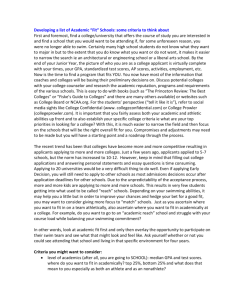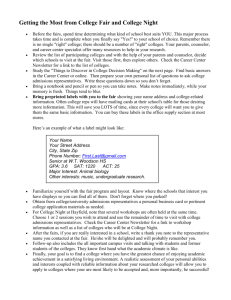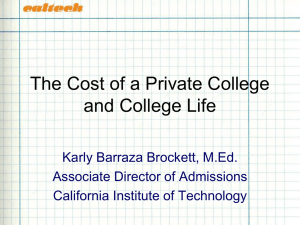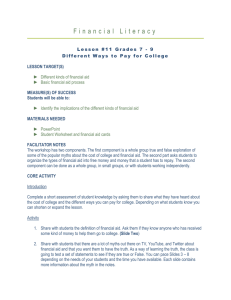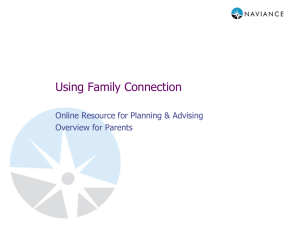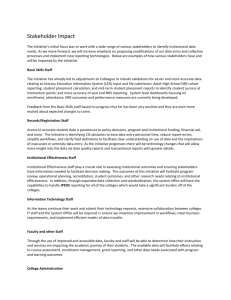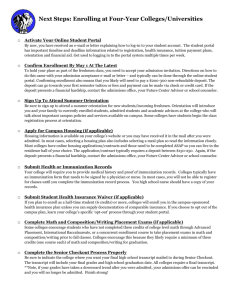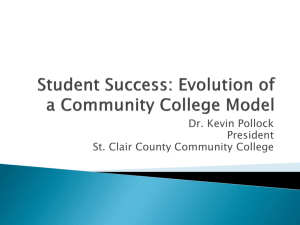Questions and Suggestions for the 2015 College Fair
advertisement
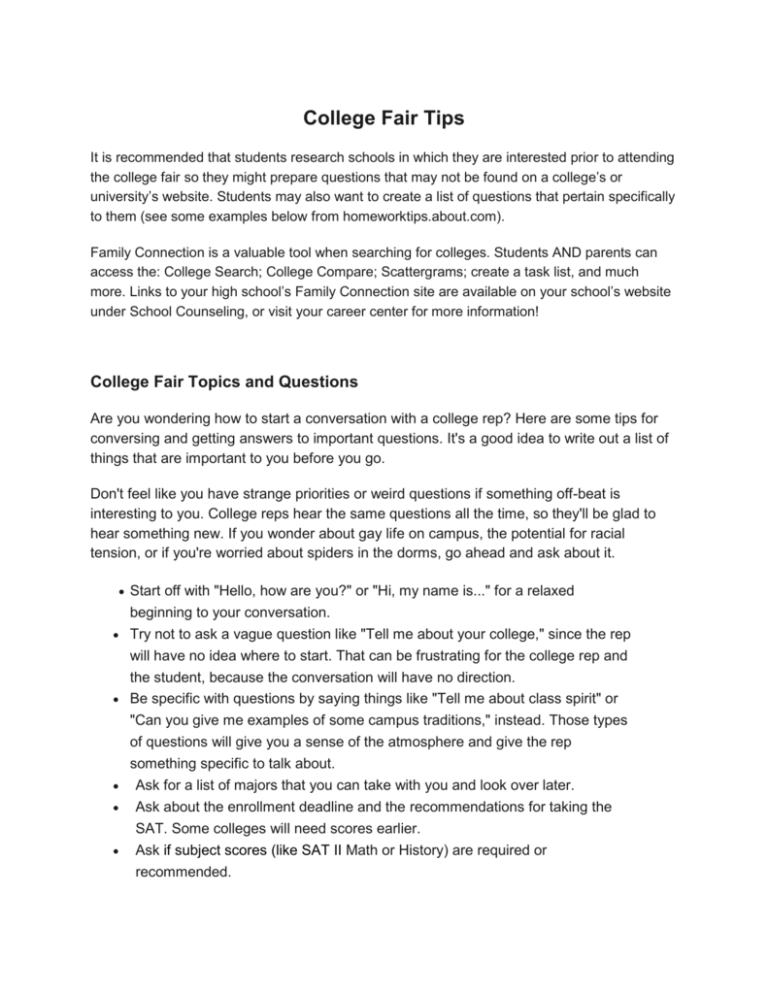
College Fair Tips It is recommended that students research schools in which they are interested prior to attending the college fair so they might prepare questions that may not be found on a college’s or university’s website. Students may also want to create a list of questions that pertain specifically to them (see some examples below from homeworktips.about.com). Family Connection is a valuable tool when searching for colleges. Students AND parents can access the: College Search; College Compare; Scattergrams; create a task list, and much more. Links to your high school’s Family Connection site are available on your school’s website under School Counseling, or visit your career center for more information! College Fair Topics and Questions Are you wondering how to start a conversation with a college rep? Here are some tips for conversing and getting answers to important questions. It's a good idea to write out a list of things that are important to you before you go. Don't feel like you have strange priorities or weird questions if something off-beat is interesting to you. College reps hear the same questions all the time, so they'll be glad to hear something new. If you wonder about gay life on campus, the potential for racial tension, or if you're worried about spiders in the dorms, go ahead and ask about it. Start off with "Hello, how are you?" or "Hi, my name is..." for a relaxed beginning to your conversation. Try not to ask a vague question like "Tell me about your college," since the rep will have no idea where to start. That can be frustrating for the college rep and the student, because the conversation will have no direction. Be specific with questions by saying things like "Tell me about class spirit" or "Can you give me examples of some campus traditions," instead. Those types of questions will give you a sense of the atmosphere and give the rep something specific to talk about. Ask for a list of majors that you can take with you and look over later. Ask about the enrollment deadline and the recommendations for taking the SAT. Some colleges will need scores earlier. Ask if subject scores (like SAT II Math or History) are required or recommended. Feel free to ask if the rep can waive your application fee, but know that this usually works best at private colleges. Ask if there are any scholarship secrets. There are many little-known tricks that differ from college to college, but the conversation doesn't always get around to this in a rushed environment like a college fair. You will want to know the admission requirements, of course, but you may also want to ask whether admissions officers make decisions on numbers, or if they really do consider activities. Some colleges go by scores and grades and follow a formula. Other colleges really give greater weight to activities, experience, and interests. Ask if a student leader can contact you to give you a student's perspective. Provide an email address for this. Go ahead and ask about the food. Sometimes there are many choices and other times there aren't. Remember, you'll have to live with it for four years. Find out the safety history of the campus and the surrounding town. Sometimes the campus rests in an area where high crime takes place just outside the area considered the campus. A representative may not mention this. This is also something you should research on your own, before you get too attached to the dream. Be safe! Ask how many of the students drop out, transfer away, or how many stay and graduate. College reps may cringe at this one, because student retention is a touchy issue at many colleges. A low retention rate may be a warning sign, though. Ask: "What's the biggest complaint from current students?" Is tutoring available? If class size is important, ask about it. Keep in mind, however, that class sizes are less important when good individual tutoring is available. Find out if tutoring is free. Ask for a direct phone number for an admission counselor and a financial aid counselor, to avoid getting caught up in an automated phone quagmire at some point. Smaller colleges will be happy to provide this, but larger colleges may not. It's always worth a try. Find out if the administration listens to student concerns. This is one of the things you might want to ask a student leader. Ask if you'll have to pay for parking or if you'll have to walk a million miles from parking lot to classes. Ask how the food plan works. If you are very conservative or very liberal in your thinking, ask about the political/social climate. This is one of the things that could cause a feeling of discomfort or alienation down the road. It's not a silly question.
